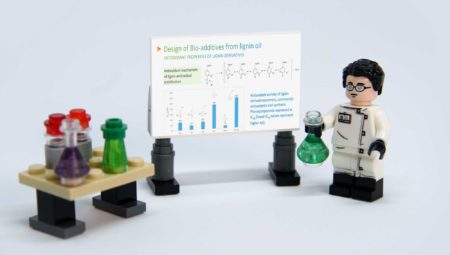Decathlon started as a sports goods retailer in the 1960s, but over the years it attracted an increasing share of the value chain and is now itself one of the largest designers and manufacturers of outdoor sports goods. It operates in more than 40 countries worldwide and has a total of 1,700 shops.
“Sustainability is daily work for me. I spend half my working hours on it,” says Rocquin. “In 2020, we have committed to the COP21 climate goals. In a nutshell, that means CO2 emissions must be 53% down by 2026, compared to 2016. Keeping emissions down while growing your business is quite a challenge.” To achieve this goal, Decathlon is taking two paths: converting its entire supply chain to green energy and eco-design. “Our starting point is that we want to make the same product, with the same physical properties, with a lower environmental impact.”
Environmental performance
Raw materials, manufacturing and product use account for 81% of Decathlon’s total CO2 emissions. In sports shoes, more than 50% of the environmental impact is determined by textiles and 31% by rubber and EVA, the soft parts that provide grip, protection and comfort.
By looking at each part of the shoe to see what impact a modification has on its environmental performance, Decathlon seeks to find out how to make it more sustainable. It turns out, for instance, that replacing the plasticiser with a green variant has better results than replacing the dye. But replacing synthetic rubber with natural rubber, using 30% recycled rubber and opting for biobased fillers such as biosilica, can really make a difference.
“On its own, this is not enough. If we want to achieve a 53% reduction, we can not take just one or two of these measures; we will have to apply them all. That’s why biobased chemistry is so important to us.” Rocquin points to the production of biostyrene, one of the bio-aromatics that Biorizon is currently developing. “That is really interesting for us, because we use a lot of styrene in our SBR (styrene butadiene rubber) products.”
Certification
Decathlon wants to be sure that biobased materials are not just interesting for marketing purposes, but actually have a lower environmental impact. “We don’t want anything to do with inefficient processes, GMO, palm oil or first-generation biomass from crops that compete with food production. And we also expect our suppliers to be able to answer questions about the origin of raw materials, the impact on issues such as deforestation, biodiversity and human rights. Transparency and traceability are important to us, which is why we ask for certification whenever possible. We do also have to become increasingly strict towards our suppliers, because we are judged on this and we expect the number of regulations to only increase in the future.”
Opting for biobased chemistry also brings economic challenges, according to Rocquin. For instance, fewer chemicals are widely available, there is less choice of suppliers and therefore less price competition. “Customers are willing to pay a bit more for green products, but not too much,” he says. “So keeping the price of biobased chemicals under control, which is one of Biorizon’s objectives, will be one of the key success factors in this area. And finally, we make sporting goods, that is paramount. Biobased or not, we will not compromise on performance in any way.”
Working on applications
The Biorizon research programme responds well to the industry’s need for better-performing, sustainable chemicals. The Biorizon annual event provided an overview of recent developments and progress of the three research directions (‘horizons’). All three are on course towards the full commercialisation of bio-aromatics production. Since the recent inauguration of the LignoValue Pilot Plant in October, pilot plants are now in place to provide kilogram-scale samples within all horizons. They pave the way for working with industry on applications.
The next annual event will be held at the end of 2023, marking the first decade of Biorizon.
Image: Biorizon

 Shared Research Center Biorizon, an initiative of TNO and VITO, has been working on technologies for the production of bio-aromatics at the Green Chemistry Campus in Bergen op Zoom (The Netherlands) since 2013. Together with industrial partners, Biorizon co-creates and develops innovative chemical processes for the production of renewable aromatics from residual biomass.
Shared Research Center Biorizon, an initiative of TNO and VITO, has been working on technologies for the production of bio-aromatics at the Green Chemistry Campus in Bergen op Zoom (The Netherlands) since 2013. Together with industrial partners, Biorizon co-creates and develops innovative chemical processes for the production of renewable aromatics from residual biomass.


